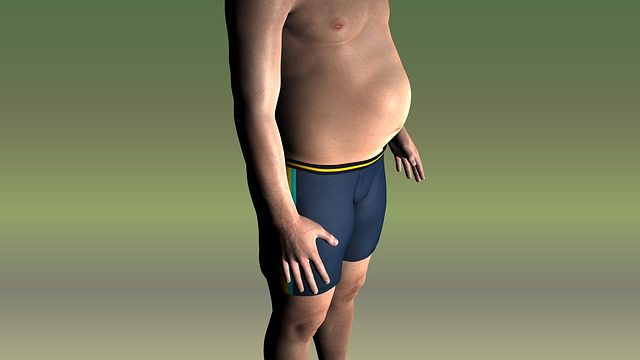8 Reasons You Always Feel Bloated
Do you feel bloated more times than not? You’re not alone. AND, you don’t need to live like that.
That tight, full, and uncomfortable feeling in your stomach is all too common. You wake up feeling fine, but after a meal, it feels like your abdomen has inflated like a balloon. It’s a frustrating experience, especially when you’re trying to eat healthy and stay active, but nothing seems to stop that persistent bloat.
The good news is that you’re not imagining it. Studies show that up to 30% of people report experiencing bloating regularly. While it’s usually temporary and not a sign of something serious, that discomfort can ruin your day and make you feel self-conscious.
As a certified sports nutritionist with over 15 years of experience helping clients optimize their health, I’ve seen how bloating can derail even the most dedicated fitness plans. It’s often linked to digestive processes, and sometimes even hormonal shifts can play a role. For instance, there’s a strong connection between bloating and estrogen.
This guide will break down the most common reasons why you always feel bloated and give you the actionable strategies you need to find relief and get back to feeling your best.
Disclaimer: This article is for informational purposes only and is not meant to treat or diagnose any condition. It is recommended that you speak with your doctor if you suffer from being bloated regularly.
Table of contents
Key Takeaways
- Bloating is often caused by excess gas in the gut, which can stem from diet, lifestyle habits, or underlying medical conditions.
- Common triggers include overeating, consuming carbonated drinks, food intolerances (like lactose or FODMAPs), and constipation.
- Swallowing excess air from chewing gum or eating too fast is a frequent and overlooked cause.
- Certain medications, including common painkillers like NSAIDs and some antibiotics, can lead to bloating as a side effect.
- If bloating is persistent, severe, or accompanied by other symptoms like unexplained weight loss or pain, it’s crucial to consult a healthcare professional.

What Does It Mean to Feel Bloated?
To feel bloated is to experience a sensation of fullness, tightness, or pressure in your abdomen. It’s important to distinguish this feeling from abdominal distension, which is a visible, measurable increase in your stomach’s size. You can feel bloated without having a distended stomach, and vice versa.
This feeling happens when your gastrointestinal (GI) tract fills with air or gas. According to Johns Hopkins Medicine, this can occur when you swallow air or when the natural bacteria in your gut have trouble breaking down certain foods, leading to gas production.
Symptoms of Bloating
While the primary symptom is that feeling of uncomfortable fullness, bloating often comes with a few other tell-tale signs. Here are the most common symptoms you might experience:
- Abdominal Fullness: A distinct feeling that there’s no more room in your stomach, even if you haven’t eaten much.
- Distension: A visible swelling of your abdomen, making your clothes feel tighter than usual.
- Discomfort or Pain: A dull ache or sharp pains in your stomach area. This is caused by the stretching of your intestinal walls.
- Excessive Gas: An increase in burping or flatulence as your body tries to release the trapped gas.
- Gurgling Sounds: Also known as borborygmi, these are the rumbling noises you hear as gas and fluid move through your digestive tract.
8 Common Reasons Why You Always Feel Bloated

There are many reasons you might feel bloated, but if it happens regularly and causes significant discomfort, it’s a good idea to speak with your doctor. Persistent bloating could be a symptom of an underlying health issue.
Below are eight common reasons why you always feel bloated.
1. Overeating
Overeating is one of the most direct causes of bloating. When you eat a large meal, it puts a significant strain on your digestive system. Your stomach has a limited capacity, and exceeding it can lead to that uncomfortable, stuffed sensation.
A pro-tip I always share with my clients is to practice mindful eating. Instead of rushing through a meal, take your time and chew each bite thoroughly. This not only helps your stomach process the food more efficiently but also gives your brain the 20 minutes it needs to register fullness, preventing you from overeating in the first place.
2. GI condition
If you constantly feel bloated, it could be a sign of an underlying gastrointestinal (GI) condition. These conditions often interfere with normal digestion and gas movement, leading to chronic bloating.
Some of the most common culprits include:
- Irritable Bowel Syndrome (IBS): A disorder affecting the large intestine. The International Foundation for Gastrointestinal Disorders reports that bloating is one of the most frequent and bothersome symptoms for IBS patients.
- Small Intestinal Bacterial Overgrowth (SIBO): This occurs when there’s an abnormal increase in the bacterial population in the small intestine, leading to excess gas production.
- Inflammatory Bowel Disease (IBD): This includes conditions like Crohn’s disease and ulcerative colitis, which cause chronic inflammation of the digestive tract.
Related Articles: Use These Techniques to Create a Tiny Waist
If your bloating is persistent and paired with other symptoms like pain, diarrhea, or constipation, it is crucial to see a gastroenterologist for a proper diagnosis.
3. You consume bubbly or carbonated drinks
The fizz in carbonated beverages comes from dissolved carbon dioxide gas. When you drink them, you are swallowing that gas, which then enters your digestive system. This can easily lead to a buildup of air in your stomach, causing you to feel bloated.

Sugary sodas can make the problem worse, as the sugar can contribute to gas production by gut bacteria. Even “healthier” options like sparkling water can cause bloating if you’re sensitive. Try switching to flat water infused with lemon or mint to stay hydrated without the bloat.
4. A food intolerance
A food intolerance occurs when your digestive system has difficulty breaking down a particular food. This leads to undigested particles traveling to the large intestine, where bacteria ferment them, producing gas and causing you to feel bloated.
RELATED: Best Herbal Diuretic Ingredients You Never Knew About
Common intolerances include:
- Lactose: Found in dairy products like milk and cheese.
- Fructose: A sugar found in fruits and honey, and used as a sweetener in many processed foods.
- FODMAPs: This stands for Fermentable Oligosaccharides, Disaccharides, Monosaccharides, and Polyols. These are short-chain carbohydrates that can be poorly absorbed. High-FODMAP foods include wheat, onions, garlic, and beans. Following a low-FODMAP diet under the guidance of a professional, like one designed by Monash University researchers, can help identify triggers.
5. Constipation
Constipation is a major cause of bloating. When stool moves too slowly through your colon, it becomes hard and difficult to pass. This backup not only causes a feeling of fullness but also gives gut bacteria more time to ferment the undigested food, producing even more gas.

According to the National Institute of Diabetes and Digestive and Kidney Diseases, increasing fiber and fluid intake is a key strategy for relief. Aim for 25-30 grams of fiber per day from sources like chia seeds, berries, and leafy greens. Also, make sure you’re drinking plenty of water to help the fiber do its job.
6. Eating too late
While eating late doesn’t automatically cause weight gain (total daily calories are what matter), a large meal right before bed can certainly make you feel bloated. Your digestive system slows down when you sleep, so food eaten just before lying down will sit in your stomach and intestines for longer.
This delayed digestion can lead to gas production and a heavy, bloated feeling in the morning. As a general rule, I suggest clients leave a 2-3 hour window between their last big meal and bedtime to allow for proper digestion.
7. Swallowing excess air
It sounds simple, but swallowing too much air, a condition known as aerophagia, is a very common reason people feel bloated. This excess air gets trapped in your digestive tract and can cause significant discomfort.
You might be swallowing more air than you realize if you:
- Eat or drink too quickly.
- Chew gum or suck on hard candies.
- Drink through a straw.
- Smoke.
Slowing down during meals and being mindful of these habits can make a surprising difference in reducing your bloating.
8. Taking certain medications
Many common medications can list bloating as a side effect. They can interfere with digestion, affect gut bacteria, or cause fluid retention, all of which contribute to that swollen feeling.
Some well-known examples include:
- NSAIDs: Nonsteroidal anti-inflammatory drugs like ibuprofen (Advil) and naproxen (Aleve) can irritate the stomach lining.
- Antibiotics: These can disrupt the balance of good and bad bacteria in your gut.
- Opioids: Prescription pain relievers are known to slow down digestion significantly.
- Antidepressants: Certain types can affect gut motility.
If you suspect a new medication is causing you to feel bloated, don’t stop taking it. Instead, discuss the side effect with your doctor to see if there are alternative options.
FAQs If You Feel Bloated
When should I see a doctor about bloating?
You should consult a doctor if your bloating is persistent, severe, or accompanied by other worrying symptoms. These include sharp abdominal pain, blood in your stool, unexplained weight loss, fever, or vomiting. These can be signs of a more serious underlying condition that needs medical attention.
Can stress cause me to feel bloated?
Yes, stress can absolutely cause bloating. The gut-brain axis is a powerful connection. When you’re stressed, your body releases hormones like cortisol that can disrupt digestion, increase gut sensitivity, and even lead to swallowing more air. Many people find their digestive symptoms, including bloating, flare up during stressful periods.
What foods can help relieve bloating quickly?
Certain foods have properties that can help soothe your digestive system. Peppermint is known to relax intestinal muscles, making it easier for gas to pass. Ginger can speed up stomach emptying, while pineapple contains an enzyme called bromelain that aids in protein digestion. Drinking peppermint or ginger tea can be a quick and effective remedy for many people.
Does drinking more water help with bloating?
It might seem counterintuitive to add more to a full stomach, but drinking water often helps. If your bloating is caused by dehydration or constipation, water can help get things moving. It also helps flush out excess sodium, which can cause water retention. However, avoid chugging large amounts at once, as that can make you swallow air.


*Disclosure: This article may contain affiliate links or ads, which means we earn a small commission at no extra cost to you if you make a purchase through these links. These commissions help support the operation and maintenance of our website, allowing us to continue producing free valuable content. Your support is genuinely appreciated, whether you choose to use our links or not. Thank you for being a part of our community and enjoying our content.
PLEASE CONSIDER SHARING THIS ON YOUR SOCIAL MEDIA TO HELP OTHERS LEARN MORE ABOUT THIS TOPIC.





